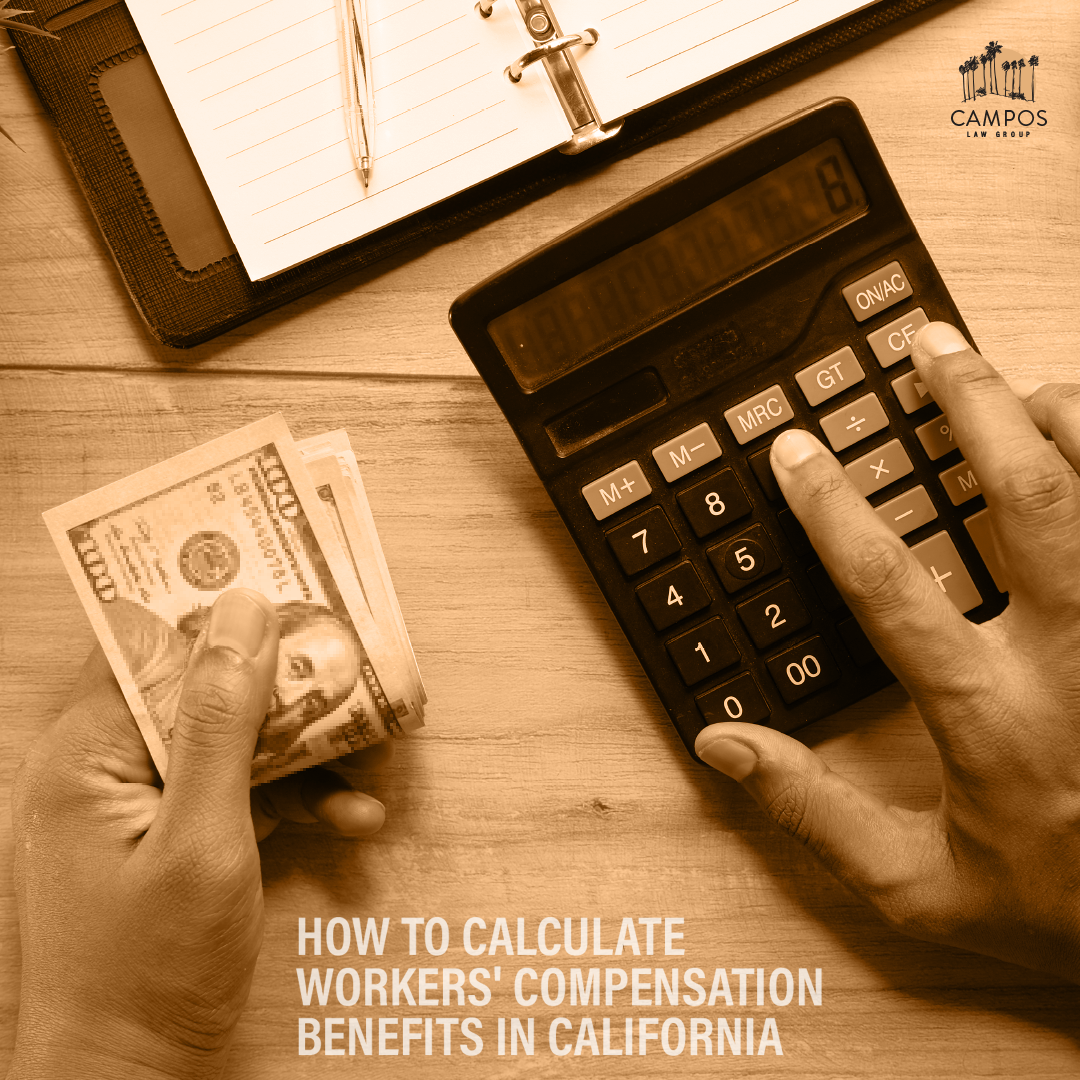How to Calculate Workers' Compensation Benefits in California
In California, workers' compensation provides vital financial and medical support to employees who are injured or become ill due to their jobs. Understanding how these benefits are calculated ensures that you receive the compensation you're entitled to.
1. Key Factors in the Calculation
Several factors influence how your workers' compensation benefits are determined:
Average Weekly Wage (AWW): This is typically based on your gross earnings before the injury, including overtime, bonuses, and other income.
Type of Disability: The amount and duration of benefits depend on the nature of your disability—whether it is temporary or permanent, and partial or total.
2. Temporary Disability Benefits
If your injury temporarily prevents you from working, you may qualify for temporary disability (TD) benefits.
These benefits are generally two-thirds (66.67%) of your AWW.
TD benefits are designed to partially replace lost wages while you recover and are unable to return to work.
Example:
If your AWW is $900, your weekly benefit would be approximately $600 (two-thirds of $900).
Note: California law sets minimum and maximum benefit limits, which are updated annually.
3. Permanent Disability Benefits
If your injury results in a lasting impairment, you may be eligible for permanent disability (PD) benefits.
The benefit amount is based on your disability rating, which reflects the severity of your injury and its impact on your ability to work.
Other factors include your age, occupation, and date of injury.
These benefits are intended to compensate for long-term loss of earning capacity.
4. Medical Benefits
Workers' compensation covers all reasonable and necessary medical expenses related to your work injury or illness, including:
Doctor visits
Hospital stays
Surgeries
Medications
Physical therapy and rehabilitation
You are not responsible for out-of-pocket costs as long as the treatment is authorized within the workers’ compensation system.
5. Death Benefits
If a work-related injury or illness results in death, dependents of the deceased worker may be eligible for compensation.
This typically includes funeral and burial expenses (up to a state-mandated limit).
Eligible dependents may also receive ongoing financial support based on the deceased worker’s AWW.
6. How to Estimate Your Workers’ Compensation Benefits
To estimate your benefits:
Calculate Your Average Weekly Wage (AWW):
Use recent pay stubs to determine your average gross weekly earnings, including overtime and bonuses.Apply the Appropriate Benefit Rate:
For temporary disability: Multiply AWW by 66.67%.
For permanent disability: Refer to your disability rating and California’s PD schedule.
Check State Benefit Limits:
Review the current maximum and minimum benefit amounts set by California law.Factor in Additional Compensation:
Include coverage for medical expenses, mileage reimbursement for travel to appointments, and vocational rehabilitation, if applicable.
7. Why Legal Guidance Matters
Although these guidelines provide a general understanding, workers’ compensation claims can be complex.
Miscalculations or incorrect disability ratings can lead to reduced benefits.
A qualified workers’ compensation attorney can ensure your claim is accurate and that you receive the full benefits you’re entitled to.
If you’ve suffered a job-related injury or illness, it’s natural to be concerned about how you’ll manage financially while you recover. Fortunately, California’s workers’ compensation system offers benefits that can help cover medical expenses and replace a portion of your lost wages.
To better understand the types of benefits you may be eligible for—and how much compensation you might receive—contact Campos Law Group today for a free consultation. Our experienced team is here to help you navigate your claim and fight for the support you deserve.


